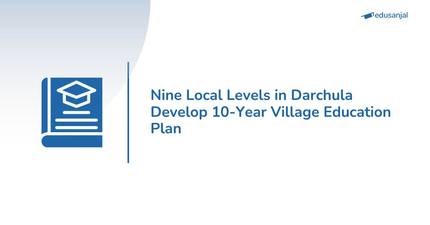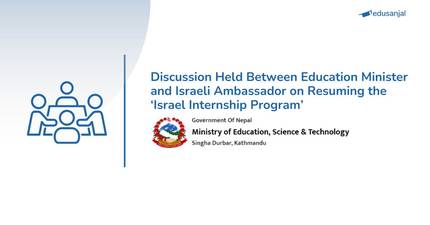In line with the priorities set by the federal government in its fiscal year 2082/83 budget, provincial governments across Nepal have incorporated key educational initiatives into their budget plans. The federal budget presented on Jestha 15 emphasized several aspects of education reform, including managing community school teachers, integrating information technology in teaching and learning, reviewing teacher quotas, establishing model schools, school mergers, and promoting "big schools."
Following this lead, provincial governments have introduced various programs and policies in their budgets to strengthen the education sector.
Karnali Province
Karnali’s budget, presented by Minister of Economic Affairs and Planning Rajiv Bikram Shah, allocates support for the physical improvement of 390 schools. The province plans to launch a “One Electoral Constituency, One Residential School” initiative in collaboration with local governments. Additionally, it prioritizes implementing a digital learning support program for SEE (Grade 10) students and providing lump-sum grants to hire English, Math, and Science teachers in community schools with high student-teacher ratios.
Bagmati Province
Minister Kundan Raj Kafle’s budget outlines the continuation of existing residential education programs in community schools. The province commits to modernizing and enhancing the quality of education under the theme of "Teachers as Change Agents." Emphasis will be placed on increasing access to education for children from marginalized communities such as the Jirel, Surel, Thami, Chepang, Majhi, and Danuwar. Ethical education from the school level and promotion of tech-friendly vocational programs are also included.
Gandaki Province
Gandaki Province's budget, presented by Minister Takraj Gurung, focuses on expanding "big" and "lead" residential schools in collaboration with local governments. Programs to continue include parental education, educational awareness, talent identification, and professional development of teachers. The province will also support integrated technical and general stream schools under the “Learn While You Earn” model.
Lumbini Province
The budget, presented by Minister Dhanendra Karki, includes provisions to utilize the knowledge and experience of retired teachers and professors for academic improvement. It also plans to launch teacher incentive programs to improve learning outcomes in Math and Science. Lumbini aims to expand STEM (Science, Technology, Engineering, and Math) education and promote research fellowships in higher education. The “Learning, Earning, and Skilling” approach will be given meaningful implementation.
Madhesh Province
Madhesh Province has allocated funds to implement a volunteer teacher program and improve physical infrastructure in schools across its eight districts. Budget has also been set aside for administrative and infrastructural upgrades in provincial universities.
Koshi Province
The budget presented by Minister Ram Bahadur Magar includes allocations for strengthening school infrastructure in hilly and Himalayan regions and building residential schools. Dhanakuta’s residential school will be developed as a model institution. The province has emphasized child-friendly and tech-friendly learning environments, encouraged school mergers, and committed to continuing its “Learn While You Earn” program. Support will also continue for the volunteer science teacher program in schools lacking permanent science teachers. Funds have been designated for restructuring Manmohan Technical University and supporting studies, teaching, and research in medical sciences.
Sudurpaschim Province
In Sudurpaschim Province, the budget includes plans to develop one model secondary school in each of the 32 electoral constituencies. Each local level will receive support for educational materials and teacher training in one Early Childhood Development (ECD) center. Residential facilities will be established for children with disabilities and orphans to ensure their access to education. Additionally, one high-enrollment campus in each district will be developed as a model campus.













